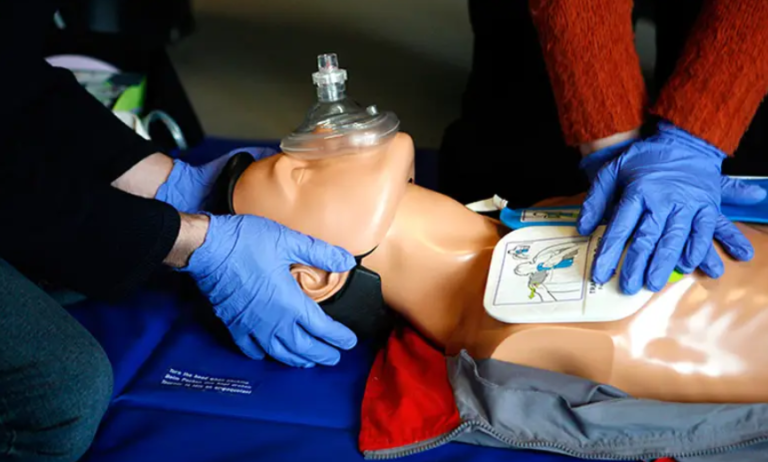Is TMJ Surgery in New York City, Ny Right for You?
Jaw pain that turns every meal into a challenge isn’t just uncomfortable; it can be life-altering. TMJ (temporomandibular joint) disorders affect the joint that connects your jaw to your skull, often causing chronic pain and difficulty chewing, speaking, and even opening your mouth fully. While many find relief through non-surgical methods like therapy or medication, others continue to suffer despite their efforts.
For those patients, TMJ surgery in New York City, NY may offer a path to lasting relief, and in a city like New York, with access to the best specialists like MFSS and advanced care, you’re in one of the best places in the world to explore that option. In this blog, we’ll break down when surgery is necessary, the procedures available, and what you can expect from TMJ treatment in NYC.
Knowing The TMJ Disorders Before TMJ Surgery in New York City, Ny
Your TMJ acts like a hinge, connecting your jawbone to your skull. When this joint experiences problems, it can lead to pain in your jaw, face, ear, and neck. You may also notice clicking or popping sounds when you move your jaw, difficulty chewing, or your jaw becoming “locked.” These symptoms often arise from issues with the joint itself, the surrounding muscles, or the disc within the joint.
A Hub for Specialized Care
New York City has a wide array of highly skilled dental and oral surgeons who specialize in TMJ disorders. These specialists are equipped with advanced diagnostic tools and treatment options to address complex jaw issues. The city’s medical field offers access to leading experts and modern facilities, which can be a considerable advantage when considering a specialized procedure like TMJ surgery.
Exploring Non-Surgical Options First
It’s important to understand that TMJ surgery is generally considered a last resort. Before recommending surgery, most healthcare professionals will exhaust a range of non-surgical treatments. These conservative approaches often include:
Soft diet
Avoid hard, chewy foods to reduce strain on the jaw.
Pain management
Using over-the-counter pain relievers or prescription medications.
Physical therapy
Performing specific exercises to strengthen jaw muscles and improve joint movement.
Oral appliances
Wearing a custom-fitted nightguard or splint to prevent teeth grinding or clenching.
Stress management
Addressing stress, as it can contribute to jaw clenching.
The goal is always to remove your symptoms using the least invasive methods possible. If these conservative treatments prove ineffective in managing your pain and improving your jaw function, then surgery may enter the discussion.
See also: 7 Surprising Health Benefits of Facial Massage in Montreal, QC
The Surgical Consultation Process
If you’re exploring TMJ surgery in New York City, NY options, your initial steps will involve a thorough consultation with an oral surgeon or TMJ specialist. During this appointment, the doctor will:
- Take a detailed medical history and discuss your symptoms.
- Perform a comprehensive physical examination of your jaw and surrounding areas.
- Order diagnostic imaging, such as X-rays, CT scans, or MRIs, to get a clear picture of your joint’s condition.
This helps the specialist accurately diagnose the root cause of your TMJ issues and determine if surgery is a viable and an appropriate solution for your specific case.
Types of TMJ Surgery
It’s important to know that TMJ surgery isn’t a single procedure; rather, there are various types, each personalized to different TMJ problems. Your surgeon will explain the specific approach they recommend, which could range from minimally invasive procedures like arthrocentesis (flushing the joint) or arthroscopy (using a small camera to operate inside the joint) to more complex open-joint surgeries for severe damage. The choice of procedure depends on the nature and severity of your TMJ disorder.
Recovery and Rehabilitation
Regardless of the specific surgical approach, recovery after TMJ surgery is an important part of the process. You’ll likely experience some post-operative discomfort, and your surgeon will provide instructions for pain management, diet modifications (often soft foods), and limitations on jaw movement. Rehabilitation through physical therapy is often a main component of recovery, helping to restore jaw function, strengthen muscles, and prevent future complications. The duration and intensity of your recovery will vary depending on the type of surgery performed.
Conclusion
Deciding if TMJ surgery in New York City, NY is right for you is a noteworthy personal choice that should be made in close consultation with qualified medical professionals like MFSS. Don’t hesitate to ask questions, look for second opinions, and thoroughly understand the benefits, risks, and recovery process associated with any recommended procedure. Your comfort and long-term well-being are the top priorities. Contact MFSS Today.




